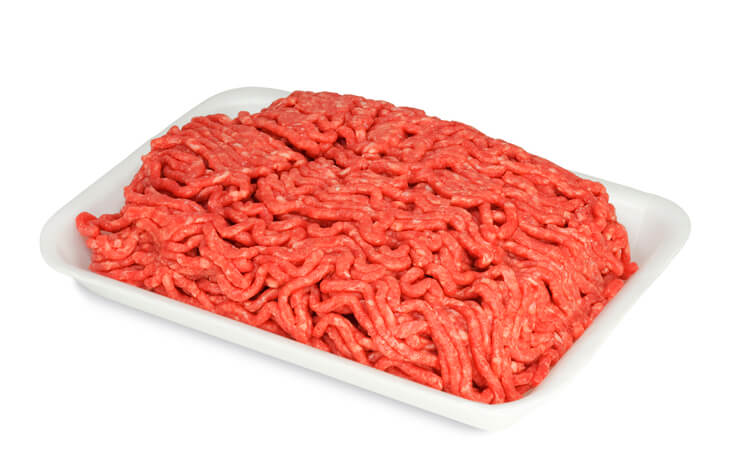A Meat-Free Ground Beef? See If This Plant-Based Alternative is For You
6 years ago | Nutrition
By Joy Stephenson-Laws, JD, Founder
We are in the thick of summer, which means grilling and barbeques are pretty popular these days. If you’re a meat eater, you may be consuming a lot of red meat as of lately. It’s hard to resist that juicy, mouthwatering burger.
But it’s important to moderate your consumption of red meat, especially if you have high cholesterol or heart disease.
And for both environmental and health reasons, many food industry professionals are jumping on the plant-based bandwagon and creating innovative products that attempt to mimic “the real deal,” as in real meat.
We previously blogged about the Impossible Burger, a meat-free burger consisting of wheat protein, coconut oil, potato protein and heme.
(Heme is an iron-rich molecule abundantly found in real meat. In the case of the Impossible Burger the heme comes from soy leghemoglobin, a protein extracted from the roots of soybean plants).
Recently, Beyond Meat, one of Impossible Foods’ biggest competitors, released a new product. It’s a plant-based “ground beef,” that “marbleizes and tenderizes just like the real thing,” according to this CNN report.
Just as you would use real ground beef for burgers, tacos and meatballs, Beyond Meat’s ground beef, made of peas, mung beans and rice, is said to be a viable replacement for all of these popular, usually meat-centered dishes.
According to Beyond Meat’s website, “...our innovation team used a unique combination of pea, mung bean and rice proteins that provides a meatier texture that mimics the chew and juiciness of ground beef. By unlocking a process that recreates the basic structure, and thus texture, of meat using only plant-based ingredients, we’re able to ensure that every bite of Beyond Beef is a delicious and meaty mouthful. Even better, this complete protein source is free of gluten, soy and GMOs [genetically modified organisms], making it a kitchen staple.”
Although it may look like real ground beef, I can’t imagine this product actually tastes like the real deal. I’m open to trying it, as my husband and myself try to mainly eat plant-based, so I did some research to see what the pros and cons of this meat alternative product are.
Pros
Beyond Meat’s ground beef contains 20 grams of plant-based protein per each four ounce serving. Protein is one of the essential macronutrients we all need to stay healthy, and it’s nice when you can find some sources of protein that don’t always come from animal foods. Obviously, this especially holds true if you are vegan or vegetarian.The Beyond Meat product also only contains six grams of saturated fat per serving and is cholesterol free. It also has 300mg of potassium, an essential mineral needed for good heart health, per serving.
Cons
When something is packaged as “non-GMO,” this may make you think “100% natural,” but that is definitely not always the case. You can view a full list of ingredients present in the Beyond Meat ground beef, here. The general rule of thumb to follow is the less ingredients, the better. And if you see an ingredient you cannot pronounce or it practically looks like a foreign language to you, this, to me, is a sign to put the product back on the shelf.
I will say the Beyond Meat’s ground beef is a step up from one of their earlier products, the actual meat alternative burger patty. Their burger patty contains 18 ingredients. The point is these meat alternative products still tend to be processed, and we want to eat as many whole, natural foods as possible.
Perhaps the biggest issue of concern is the sodium content. Beyond Meat’s ground beef contains 390mg of sodium per serving. So many Americans consume way too much sodium on a daily basis, and there are alarmingly high rates of hypertension in this country. If you are someone who especially needs to be mindful of salt intake, this meat alternative may not be the best for you.
Another possible cause of concern is that this product contains coconut oil, which depending on your health status, may not be the best for you.
And finally, people with peanut and legume allergies need to be mindful. Pea protein may trigger this allergy, so it is best to speak with a competent healthcare professional if you suffer from this allergy and are interested in trying this product.
Final Consensus
Honestly, I think it’s great that there are now more meat alternative products out on the market, but I also think just going with a black bean or lentil burger that you can make at home may be a better option, because you can ensure it is made from whole, natural foods. We offer several ideas for meat-free burgers here, which are nutrient-dense and delicious.
If you are going to eat alternative meats, it is advised that you eat them in moderation, just as you should with real meat. And if you have any existing health issues, allergies or are pregnant or breastfeeding, it is always recommended that you seek the advice of a competent healthcare professional about what foods you are including in your daily diet.
Enjoy your healthy life!
The pH professional health care team includes recognized experts from a variety of healthcare and related disciplines, including physicians, attorneys, nutritionists, nurses and certified fitness instructors. This team also includes the members of the pH Medical Advisory Board, which constantly monitors all pH programs, products and services. To learn more about the pH Medical Advisory Board, click here.







